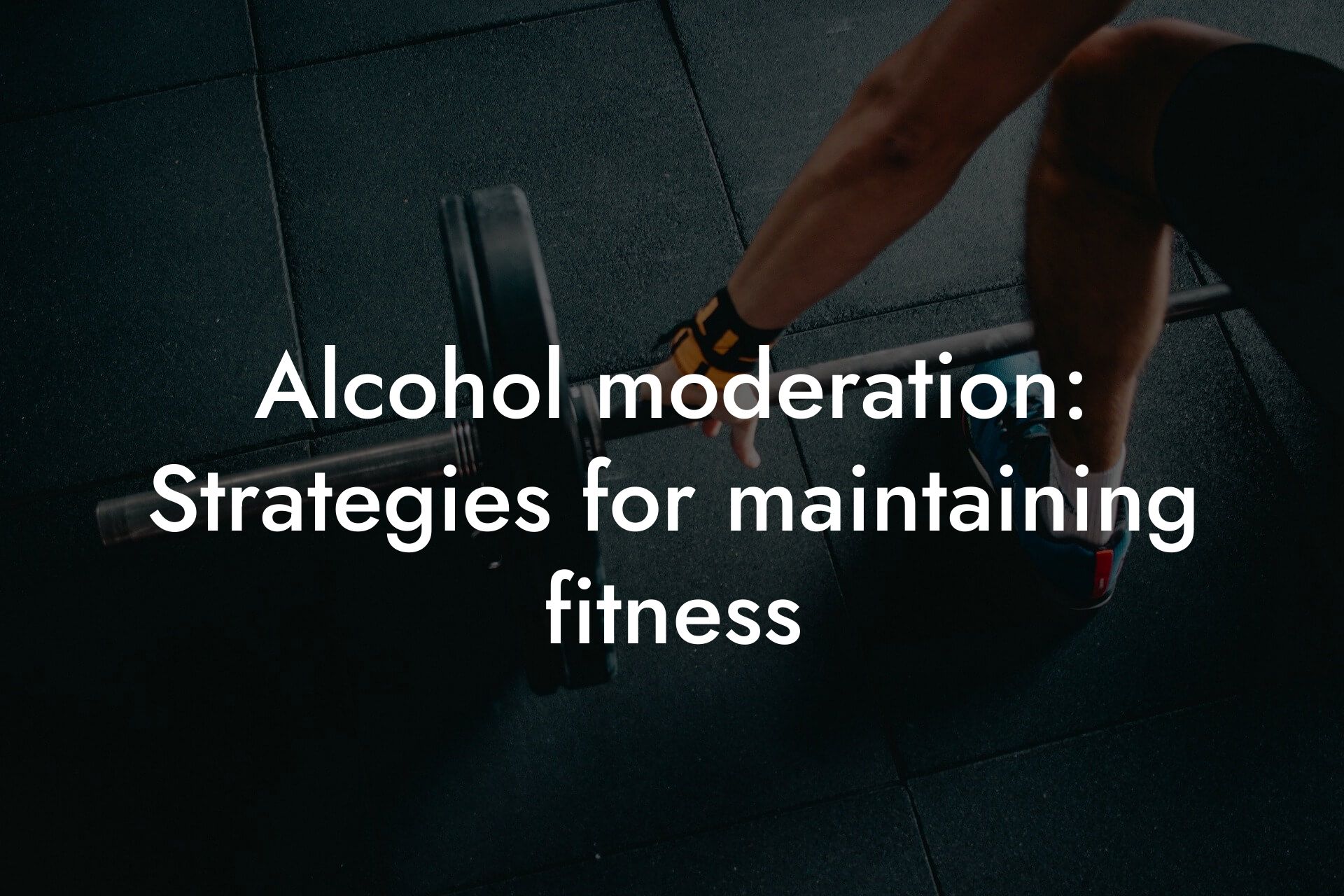As a high-earning professional, you understand the importance of maintaining a healthy and fit physique. However, if you're a smoker, you may be unaware of the significant impact it has on your body composition and bone health. At Tano Performance Group, we're committed to providing you with the information you need to make informed decisions about your health and wellness. In this article, we'll delve into the effects of smoking on your body and provide you with the knowledge you need to take control of your health.
Table of Contents
- The Risks of Smoking on Body Composition
- The Impact of Smoking on Bone Health
- The Mechanisms Behind Smoking's Impact on Body Composition and Bone Health
- The Benefits of Quitting Smoking for Body Composition and Bone Health
- How DEXA Scans Can Help You Track Your Progress
- Tips for Quitting Smoking and Improving Your Body Composition and Bone Health
- Frequently Asked Questions
The Risks of Smoking on Body Composition
Smoking is a significant risk factor for various health problems, including obesity, diabetes, and cardiovascular disease. When it comes to body composition, smoking can lead to a range of issues, including:
- Increased visceral fat: Smoking has been shown to increase the accumulation of visceral fat, which is the fat that surrounds your organs in the abdominal cavity. This type of fat is a major risk factor for chronic diseases, including heart disease and type 2 diabetes.
- Decreased muscle mass: Smoking can lead to a loss of muscle mass, particularly in older adults. This can result in a range of issues, including decreased mobility, reduced bone density, and an increased risk of falls.
- Altered body fat distribution: Smoking can cause fat to be redistributed to the abdominal area, leading to an increased waist circumference. This can increase the risk of chronic diseases, including heart disease and stroke.
The Impact of Smoking on Bone Health
Smoking is a significant risk factor for osteoporosis, a condition characterized by brittle and porous bones. When you smoke, you're more likely to experience:
- Reduced bone density: Smoking can lead to a decrease in bone density, making your bones more susceptible to fractures and osteoporosis.
- Increased risk of osteoporotic fractures: Smoking increases the risk of osteoporotic fractures, particularly in the hips, spine, and wrists.
- Delayed fracture healing: Smoking can impede the healing process of fractures, leading to prolonged recovery times and increased risk of complications.
The Mechanisms Behind Smoking's Impact on Body Composition and Bone Health
So, how does smoking have such a profound impact on body composition and bone health? The mechanisms are complex, but some of the key factors include:
- Oxidative stress: Smoking leads to an increase in oxidative stress, which can damage cells and tissues throughout the body.
- Inflammation: Smoking causes chronic inflammation, which can lead to a range of issues, including insulin resistance, cardiovascular disease, and osteoporosis.
- Hormonal imbalances: Smoking can disrupt hormonal balances, including a decrease in estrogen levels, which can contribute to osteoporosis and changes in body composition.
The Benefits of Quitting Smoking for Body Composition and Bone Health
Quitting smoking is one of the most effective ways to improve your body composition and bone health. When you quit smoking, you can expect:
- Improved insulin sensitivity: Quitting smoking can improve insulin sensitivity, reducing the risk of type 2 diabetes and cardiovascular disease.
- Increased muscle mass: Quitting smoking can lead to an increase in muscle mass, particularly in older adults.
- Improved bone density: Quitting smoking can help improve bone density, reducing the risk of osteoporosis and fractures.
How DEXA Scans Can Help You Track Your Progress
At Tano Performance Group, we use DEXA scans to provide our clients with a comprehensive body assessment. DEXA scans can help you track changes in your body composition and bone health, allowing you to make informed decisions about your health and wellness.
With a DEXA scan, you'll receive a detailed report on your body fat percentage, lean muscle mass, and bone density. This information can help you identify areas for improvement and track your progress over time.
Tips for Quitting Smoking and Improving Your Body Composition and Bone Health
Quitting smoking is a journey, and it's not always easy. However, with the right strategies and support, you can overcome the addiction and improve your body composition and bone health. Here are some tips to get you started:
- Set a quit date: Choose a specific date to quit smoking and make a plan to stick to it.
- Get support: Join a support group or talk to friends and family about your decision to quit smoking.
- Stay active: Engage in regular exercise to improve your mood and reduce cravings.
- Eat a healthy diet: Focus on whole, nutrient-dense foods to support your overall health and wellness.
Smoking has a profound impact on body composition and bone health, increasing the risk of chronic diseases and reducing overall quality of life. However, by quitting smoking and making healthy lifestyle choices, you can improve your body composition and bone health, reducing the risk of chronic diseases and improving your overall well-being. At Tano Performance Group, we're committed to providing you with the information and support you need to take control of your health. Take the first step today and schedule a DEXA scan to track your progress and achieve your health and wellness goals.
Frequently Asked Questions
What is the main impact of smoking on body composition?
Smoking has a significant impact on body composition, leading to an increase in body fat, particularly in the abdominal area. This is because smoking disrupts the body's ability to regulate insulin and glucose, leading to insulin resistance and an increased risk of developing type 2 diabetes. Additionally, smoking can also lead to a decrease in muscle mass, further contributing to an unhealthy body composition.
How does smoking affect bone health?
Smoking has a detrimental impact on bone health, increasing the risk of osteoporosis and fractures. This is because smoking reduces bone density, making bones weaker and more prone to breakage. Smoking also interferes with the body's ability to absorb calcium, a crucial mineral for bone health.
What are the risks of smoking for athletes and fitness enthusiasts?
Smoking is particularly detrimental for athletes and fitness enthusiasts, as it can significantly impair physical performance. Smoking reduces lung function, decreases oxygen delivery to the muscles, and increases the risk of injury. Additionally, smoking can also lead to a decrease in muscle mass and strength, making it more challenging to achieve fitness goals.
Can smoking affect my body fat percentage?
Yes, smoking can affect your body fat percentage. Smoking has been shown to increase body fat, particularly in the abdominal area, which can lead to an increased risk of chronic diseases such as heart disease and type 2 diabetes.
How does smoking affect my metabolism?
Smoking can slow down your metabolism, making it more challenging to lose weight and maintain weight loss. This is because smoking reduces the body's ability to regulate insulin and glucose, leading to insulin resistance and an increased risk of developing type 2 diabetes.
What is the impact of smoking on muscle mass?
Smoking can lead to a decrease in muscle mass, particularly in older adults. This is because smoking reduces muscle protein synthesis, making it more challenging for the body to build and repair muscle tissue.
Can smoking affect my bone density?
Yes, smoking can affect your bone density. Smoking reduces bone density, making bones weaker and more prone to breakage. This is particularly concerning for older adults, as it can increase the risk of osteoporosis and fractures.
How does smoking affect my risk of chronic diseases?
Smoking significantly increases the risk of chronic diseases such as heart disease, type 2 diabetes, and certain types of cancer. This is because smoking damages the body's cells and tissues, making it more susceptible to disease.
What are the benefits of quitting smoking for my body composition?
Quitting smoking can have a significant impact on body composition, leading to a decrease in body fat and an increase in muscle mass. Additionally, quitting smoking can also improve insulin sensitivity, reducing the risk of developing type 2 diabetes.
How does quitting smoking affect my bone health?
Quitting smoking can improve bone health, increasing bone density and reducing the risk of osteoporosis and fractures. This is because quitting smoking allows the body to repair and rebuild bone tissue, making bones stronger and more resilient.
What are the benefits of quitting smoking for athletes and fitness enthusiasts?
Quitting smoking can significantly improve physical performance, increasing lung function, oxygen delivery to the muscles, and reducing the risk of injury. Additionally, quitting smoking can also improve muscle mass and strength, making it easier to achieve fitness goals.
Can quitting smoking help me achieve my fitness goals?
Yes, quitting smoking can help you achieve your fitness goals. Quitting smoking can improve physical performance, increase muscle mass and strength, and reduce the risk of injury, making it easier to reach your fitness goals.
How does smoking affect my skin health?
Smoking can have a significant impact on skin health, leading to premature aging, wrinkles, and age spots. This is because smoking reduces blood flow to the skin, making it more susceptible to damage and aging.
Can quitting smoking improve my skin health?
Yes, quitting smoking can improve skin health, reducing the signs of premature aging and improving skin texture and tone. This is because quitting smoking allows the body to repair and rebuild skin tissue, making skin healthier and more resilient.
What are the risks of smoking for my overall health?
Smoking poses a significant risk to overall health, increasing the risk of chronic diseases such as heart disease, type 2 diabetes, and certain types of cancer. Additionally, smoking can also lead to respiratory problems, such as chronic obstructive pulmonary disease (COPD).
Can quitting smoking improve my overall health?
Yes, quitting smoking can significantly improve overall health, reducing the risk of chronic diseases and improving respiratory health. Quitting smoking can also improve mental health, reducing stress and anxiety.
How does smoking affect my mental health?
Smoking can have a negative impact on mental health, increasing stress and anxiety. This is because smoking can lead to feelings of guilt and shame, as well as reduce self-esteem and confidence.
Can quitting smoking improve my mental health?
Yes, quitting smoking can improve mental health, reducing stress and anxiety and improving mood and overall well-being. Quitting smoking can also improve self-esteem and confidence, making it easier to achieve personal and professional goals.
What are the benefits of quitting smoking for my relationships?
Quitting smoking can improve relationships, reducing the risk of secondhand smoke and improving communication and intimacy. Quitting smoking can also improve self-esteem and confidence, making it easier to build and maintain healthy relationships.
How does smoking affect my social life?
Smoking can have a negative impact on social life, making it more challenging to participate in social activities and events. This is because smoking can lead to feelings of guilt and shame, as well as reduce self-esteem and confidence.
Can quitting smoking improve my social life?
Yes, quitting smoking can improve social life, making it easier to participate in social activities and events. Quitting smoking can also improve self-esteem and confidence, making it easier to build and maintain healthy relationships.
What are the benefits of quitting smoking for my career?
Quitting smoking can improve career prospects, increasing productivity and reducing absenteeism. Quitting smoking can also improve self-esteem and confidence, making it easier to achieve professional goals.
How does smoking affect my career?
Smoking can have a negative impact on career, reducing productivity and increasing absenteeism. This is because smoking can lead to feelings of guilt and shame, as well as reduce self-esteem and confidence.
Can quitting smoking improve my overall quality of life?
Yes, quitting smoking can significantly improve overall quality of life, reducing the risk of chronic diseases and improving physical and mental health. Quitting smoking can also improve relationships, social life, and career prospects, making it easier to achieve personal and professional goals.
Here are some related articles you might love...
- How to maintain body composition during business travel
- How to maintain fitness during long work hours
- Alcohol moderation: Strategies for maintaining fitness
- Building a home gym for busy professionals
- Sustainable habits for lifelong fitness
- The role of community in achieving fitness goals
- Weekend warrior fitness: How to stay consistent
- Balancing social life and fitness goals
- The benefits of morning workouts for professionals
Zak Faulkner
Zak Faulkner is a leading authority in the realm of physical health and body composition analysis, with over 15 years of experience helping professionals optimise their fitness and well-being. As one the experts behind Tano Performance Group, Zak has dedicated his career to providing in-depth, science-backed insights that empower clients to elevate their physical performance and overall health.
With extensive knowledge of DEXA technology, Zak specializes in delivering comprehensive body assessments that offer precise data on body fat, muscle mass, bone density, and overall physique. His expertise enables individuals to make informed decisions and achieve their fitness goals with accuracy and confidence. Zak’s approach is rooted in a deep understanding of human physiology, combined with a passion for helping clients unlock their full potential through personalised strategies.
Over the years, Zak has earned a reputation for his commitment to excellence, precision, and client-focused service. His guidance is trusted by top professionals who demand the best when it comes to their health. Whether advising on fitness programs, nutritional strategies, or long-term wellness plans, Zak Faulkner’s insights are a valuable resource for anyone serious about taking their health and fitness to the next level.
At Tano Performance Group, Zak continues to lead our Content Team revolutionising how professionals approach their physical health, offering unparalleled expertise that drives real results.




